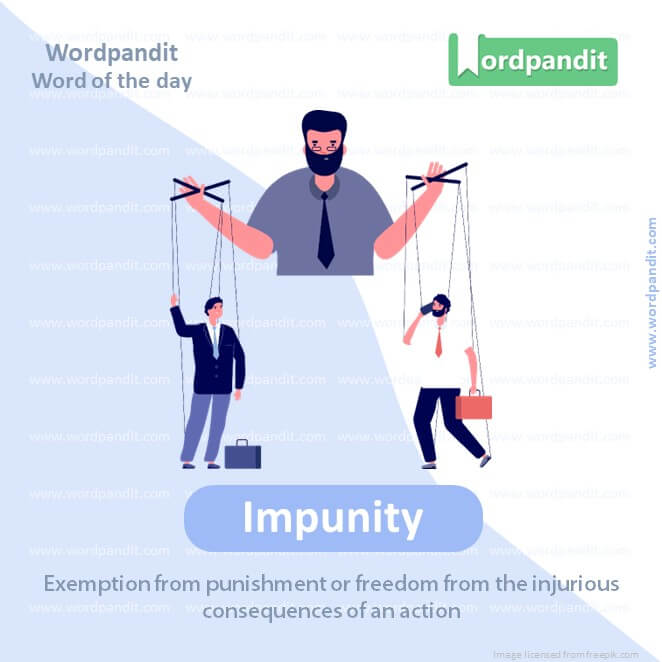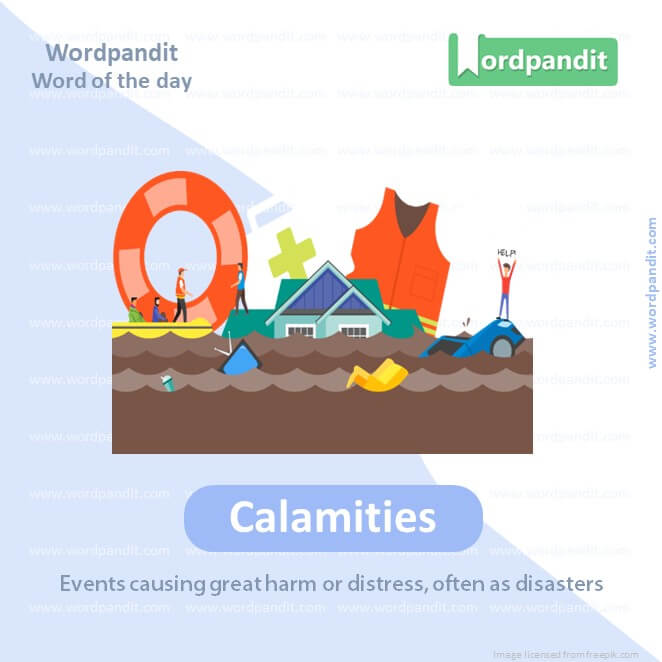Daily Vocabulary Words: List of Daily Used Words
Hi there. Welcome to this special section @ Wordpandit.
Our endeavour here is straightforward: highlighting important daily vocabulary words, you would encounter in The Hindu. This is your repository of commonly used words; essentially, we are posting a list of daily used words. Hence, this has significant practical application as it teaches you words that are commonly used in a leading publication such as The Hindu.
Visit the website daily to learn words from The Hindu.

WORD-1: YANK
CONTEXT: The toddler tried to yank the toy out of his sibling’s hand, leading to a minor squabble.
SOURCE: The Hindu
EXPLANATORY PARAGRAPH: Imagine you see a toy on the floor, and you quickly pull it towards you. That quick pull is what we call a “yank.” You yank something when you pull it fast and hard.
MEANING: To pull with a sudden, sharp movement (verb).
PRONUNCIATION: yank
SYNONYMS: tug, jerk, snatch, drag, haul, wrench
USAGE EXAMPLE:
1. I felt a yank on my sleeve and turned to see who it was.
2. She yanked the door open and stormed inside.
3. The fisherman gave a strong yank to pull the fish out of the water.
4. “Don’t yank on that rope; it might break,” warned the instructor.

WORD-2: IMPUNITY
CONTEXT: Criminals who act with impunity undermine the public’s faith in the justice system.
SOURCE: The Hindu
EXPLANATORY PARAGRAPH: Imagine if you took a cookie without asking, and no one told you it was wrong or stopped you. “Impunity” means doing something that’s not allowed and not getting into any trouble for it.
MEANING: Exemption from punishment or freedom from the injurious consequences of an action (noun).
PRONUNCIATION: im-POON-tee
SYNONYMS: exemption, immunity, license, privilege, freedom
USAGE EXAMPLE:
1. The bully acted with impunity, never facing consequences for his actions.
2. Without rules, people might behave with impunity.
3. The dictator ruled with impunity, ignoring international laws.
4. Thieves cannot be allowed to steal with impunity.
WORD-3: IMPOSITION
CONTEXT: Many citizens felt that the new tax was an unfair imposition on the working class.
SOURCE: The Hindu
EXPLANATORY PARAGRAPH: You know how sometimes you’re asked to do something you really don’t want to do? “Imposition” is like that; it’s when someone makes you do something or puts a new rule that might feel unfair.
MEANING: An unwelcome demand or burden (noun).
PRONUNCIATION: im-puh-ZISH-un
SYNONYMS: burden, demand, obligation, duty, tax
USAGE EXAMPLE:
1. The new homework policy was seen as an imposition by many students.
2. Asking her to help on such short notice felt like an imposition.
3. The imposition of strict regulations made it harder for businesses to operate.
4. She didn’t want to be an imposition, so she offered to cook dinner.

WORD-4: VAGUE
CONTEXT: The guidelines provided were too vague and led to confusion among the participants.
SOURCE: The Hindu
EXPLANATORY PARAGRAPH: Imagine if someone told you a story, but you didn’t understand it because they left out many details. That story would be “vague.” It’s when something is not clear or detailed.
MEANING: Not clearly expressed, known, described, or decided (adjective).
PRONUNCIATION: vayg
SYNONYMS: unclear, ambiguous, hazy, uncertain, nebulous
USAGE EXAMPLE:
1. The instructions were so vague that I couldn’t follow them.
2. He had a vague memory of the event from his childhood.
3. The artist’s intentions remain vague.
4. She gave a vague answer to the question.

WORD-5: CALAMITIES
CONTEXT: The region, prone to natural calamities, had to ensure that their infrastructure was resilient.
SOURCE: The Hindu
EXPLANATORY PARAGRAPH: You know how sometimes really bad things happen, like a big storm that breaks things or an earthquake? These very bad events that cause a lot of harm or sadness are called “calamities.”
MEANING: Events causing great harm or distress, often as disasters (noun).
PRONUNCIATION: kuh-LAM-i-tees
SYNONYMS: disasters, catastrophes, tragedies, mishaps, adversities
USAGE EXAMPLE:
1. The town came together to help after the calamities of the flood.
2. Drought and famine are calamities that many nations face.
3. We must be prepared for any calamities that might come our way.
4. The earthquake and tsunami were twin calamities that struck the coast.
WORD-6: AUTHORITARIANISM
CONTEXT: The rise of authoritarianism in certain nations has been a cause for concern among human rights activists.
SOURCE: The Hindu
EXPLANATORY PARAGRAPH: Imagine if there was one person or a group of people who made all the rules and didn’t let others have a say. This is called “authoritarianism.” It’s when someone has a lot of control and doesn’t listen much to others.
MEANING: A system of governance where power is concentrated in the hands of a few, and individual freedoms are restricted (noun).
PRONUNCIATION: aw-thor-i-TAIR-ee-an-izm
SYNONYMS: despotism, dictatorship, tyranny, absolutism, autocracy
USAGE EXAMPLE:
1. The country suffered under the weight of authoritarianism.
2. People protested against the rise of authoritarianism in the nation.
3. Authoritarianism can stifle individual creativity and freedom.
4. The history class discussed the dangers of unchecked authoritarianism.
WORD-7: VIGILANTES
CONTEXT: The town, lacking a strong police presence, saw a rise in vigilantes who took the law into their own hands.
SOURCE: The Hindu
EXPLANATORY PARAGRAPH: Have you ever seen superheroes in movies who try to catch bad guys even if they’re not police officers? “Vigilantes” are like that. They’re people who try to stop wrong things without official permission.
MEANING: People who take the law into their own hands without legal authority (noun).
PRONUNCIATION: vih-juh-LAN-teez
SYNONYMS: avengers, crusaders, enforcers, rangers, self-appointed police
USAGE EXAMPLE:
1. The city had seen a rise in vigilantes patrolling the streets.
2. Some hailed the vigilantes as heroes, while others saw them as a threat.
3. The vigilantes captured the thief before the police could.
4. There’s a debate about whether vigilantes do more good or harm.
WORD-8: BRAINWASH
CONTEXT: Critics argue that extremist groups use online platforms to brainwash and recruit vulnerable individuals.
SOURCE: The Hindu
EXPLANATORY PARAGRAPH: Imagine if someone kept telling you things until you started believing them, even if they weren’t true. That’s what “brainwash” means. It’s when someone tries to make you believe something by repeating it a lot or using tricks.
MEANING: To make someone believe something by using force or manipulative methods (verb).
PRONUNCIATION: brayn-wosh
SYNONYMS: indoctrinate, condition, manipulate, program, influence
USAGE EXAMPLE:
1. They tried to brainwash him into joining their group.
2. The captives were brainwashed to turn against their own country.
3. Critics argued that the ads were trying to brainwash consumers.
4. The movie depicted a cult leader who brainwashed his followers.
WORD-9: DISCONTENTED
CONTEXT: The discontented workers organized a strike to voice their grievances against their employers.
SOURCE: The Hindu
EXPLANATORY PARAGRAPH: Imagine if you got a small piece of cake while your friend got a big piece. You might feel unhappy or wish you had more. When you feel this way, you are “discontented.”
MEANING: Unhappy or dissatisfied (adjective).
PRONUNCIATION: dis-kon-TEN-ted
SYNONYMS: displeased, disgruntled, unsatisfied, restless, frustrated
USAGE EXAMPLE:
1. The discontented employees held a meeting to discuss their concerns.
2. After the game, the fans were discontented with the team’s performance.
3. A loud grumble showed the crowd was discontented.
4. She felt discontented with her current job and thought of changing careers.
WORD-10: SECTARIAN
CONTEXT: The city’s history is riddled with sectarian violence, making inter-community trust a hard-won achievement.
SOURCE: The Hindu
EXPLANATORY PARAGRAPH: Think of when people in two different groups don’t get along just because they’re from different groups, like if kids from two schools didn’t like each other only because of the school they go to. “Sectarian” is a word for when people are divided or against each other because of their group.
MEANING: Relating to differences between religious or political groups, often leading to conflict (adjective).
PRONUNCIATION: sek-TAIR-ee-an
SYNONYMS: divisive, partisan, factional, denominational, discriminatory
USAGE EXAMPLE:
1. The city had a long history of sectarian conflict.
2. The leader called for unity and an end to sectarian disputes.
3. The sectarian violence had torn communities apart.
4. Some politicians are known for their sectarian views.
vocabulary course
In the pursuit of language proficiency, enrolling in a vocabulary course is a step many individuals consider. However, successfully learning from such a course is another matter entirely. So, how can one navigate the word maze and harvest the best results from a vocabulary course?
To embark on a successful journey with a vocabulary course, it’s crucial to understand that vocabulary forms the core foundation for proficient communication. This course isn’t just about parroting words – it’s about building blocks that translate into an articulate and effective communication style. The first point to remember is to practice actively. The key to reaping rewards from a vocabulary course is regular practice. Vocabulary, like any other language aspects, strengthens with consistent usage.
Understanding context is another vital way to benefit from a vocabulary course. Learning words in isolation will only hold significance momentarily. Rather, learn them in the setting of sentences or short phrases where the word’s semantic weight comes alive. The ability to link words to contexts will not only increase retention but also elevate your comprehension and usage.
In a vocabulary course, it’s essential to bear in mind variation in learning. Swapping between different techniques like flashcards, mobile apps, reading books or engaging in game-based activities can make learning enjoyable and improve memory retention.
The structure of a vocabulary course fosters a deeper understanding of language. It provides you with the necessary tools to decode complex texts, communicate effectively, and articulate thoughts with precision. Your ability to absorb and utilize a foreign language or enhance your mother tongue is greatly amplified after successful completion of a vocabulary course.
Finally, remember that a vocabulary course is a journey, not a destination. One should always be open to learning, keen to improve and hungry to add more words into their linguistic arsenal. Aristotle once said, “The more you know, the more you realize you don’t know.” This adage holds very true for vocabulary – it’s an infinite and captivating world of words.









